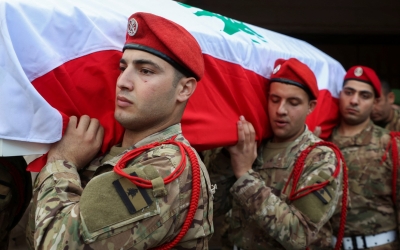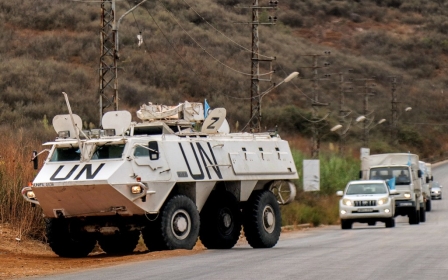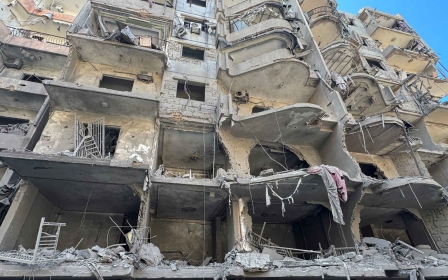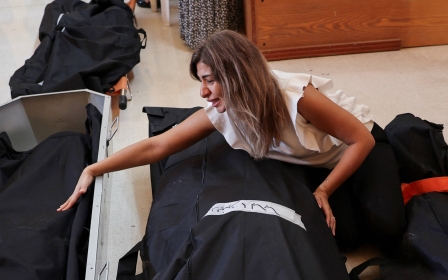Israel bombs three regions across Lebanon, kills nine
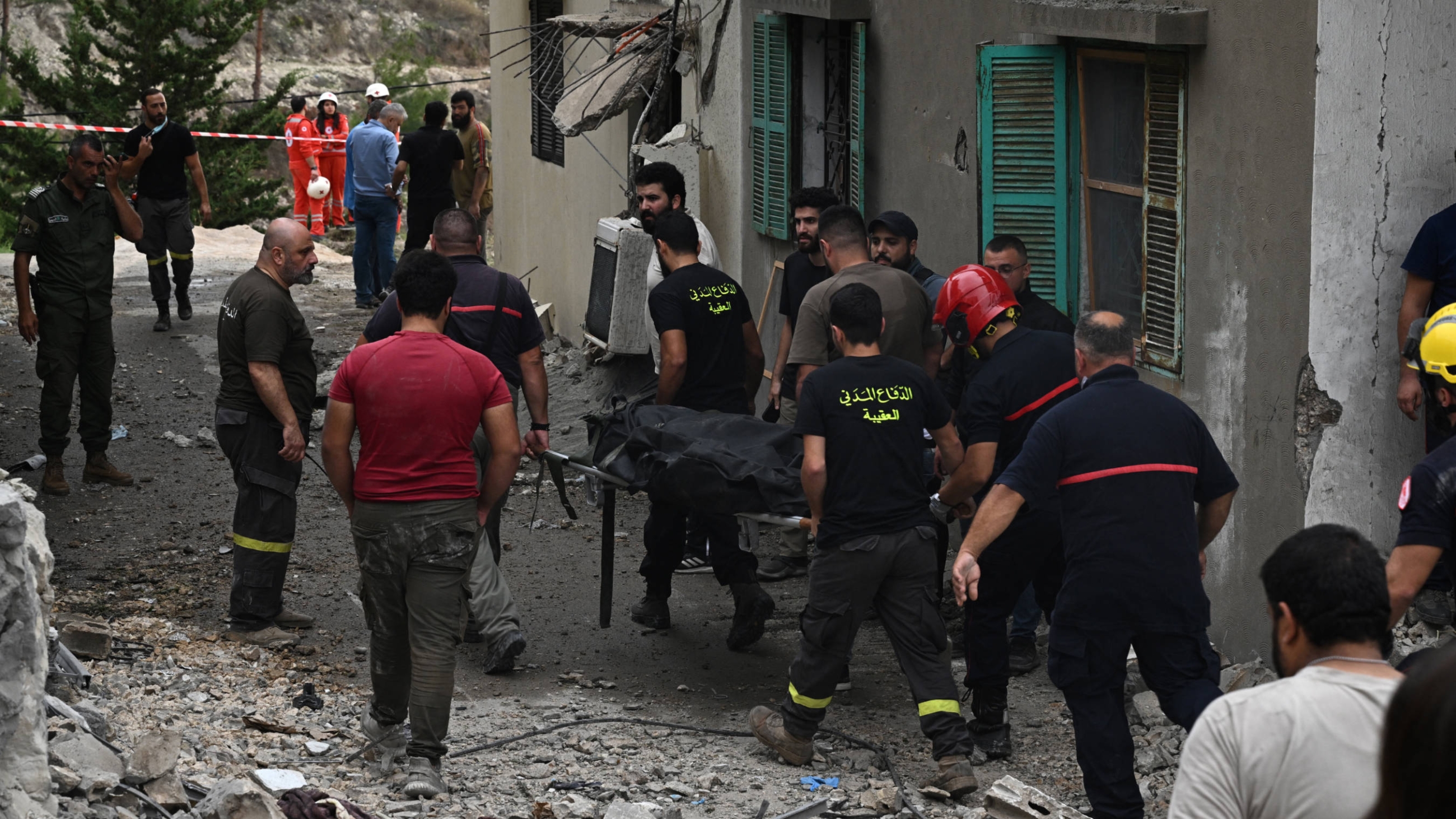
The Israeli military bombed three different regions in Lebanon on Saturday, killing nine people and wounding 28 in attacks on two villages, the Lebanese health ministry said.
An air strike on the village of Maaysra, in a mountainous area north of Beirut, killed five people from the same family and wounded 14 others. Another strike on Barja, in the Shouf district south of the capital, killed four people and wounded 14.
As of Friday, the death toll had reached 2,255 since 8 October 2023, the Lebanese health ministry said on Saturday. In the past 24 hours, 26 people have been killed and 144 wounded in Israeli attacks in Lebanon, it added.
Israeli strikes on Saturday targeted northern, eastern and southern Lebanon, where troops have been conducting a ground invasion since 1 October.
One of the targeted locations was in the town of Deir Billa in northern Lebanon, which had not been struck before.
New MEE newsletter: Jerusalem Dispatch
Sign up to get the latest insights and analysis on Israel-Palestine, alongside Turkey Unpacked and other MEE newsletters
The Israeli military has meanwhile warned residents of south Lebanon "not to return" to their homes "until further notice".
"Do not go south; anyone who goes south may put his life at risk," military spokesman Avichay Adraee said on X.
The Israeli military also ordered residents of 23 southern Lebanese villages on Saturday to leave for areas north of the Awali River, around 60km-90km away from the border.
The order mentioned villages in southern Lebanon that had been recent targets of Israeli attacks, many of which were already almost empty.
In a separate post, Adraee reiterated an earlier call for health workers and medical teams in southern Lebanon to avoid using ambulances, claiming they were being used by fighters from Lebanese armed group Hezbollah.
"We call on medical teams to avoid contact with Hezbollah members and not to cooperate with them," he said.
"The IDF [Israeli military] affirms that the necessary actions will be taken against any vehicle transporting armed individuals, regardless of its type."
Unifil posts damaged
Hezbollah said on Saturday that it had launched missiles across the border into northern Israel, where air raid sirens sounded and the military said it had intercepted a projectile. The Israeli military said the group fired about 320 projectiles into Israel between Friday and Saturday.
Israeli newspaper Haaretz reported that two people were lightly wounded by a Hezbollah rocket that landed in an open area in Jadeidi-Makr, a town near Acre in northern Israel. An industrial building in the area was also damaged, it said.
In other developments, the UN peacekeeping mission in Lebanon, Unifil, said five peacekeepers had been wounded by fighting in south Lebanon in two days.
Unifil spokesman Andrea Tenenti told AFP that its posts in the area have sustained "a lot of damage".
Two peacekeepers were wounded by an Israeli strike near their watchtower in south Lebanon on Friday, leading to global condemnation.
Israel has ordered Unifil to evacuate its bases in the areas where it was operating. However, the peacekeeping mission has refused.
They asked us to withdraw "from the positions along the Blue Line… or up to five kilometres from the Blue Line," Tenenti said, using the term for the quasi-border that separates Lebanon from Israel. "But there was a unanimous decision to stay."
Israel has reportedly established a forward operating base within very close proximity to UN Post 6-52, southeast of Maroun al-Ras border village, which is staffed by Irish peacekeepers, raising alarm from the organisation about the possible threat to their activities.
Middle East Eye delivers independent and unrivalled coverage and analysis of the Middle East, North Africa and beyond. To learn more about republishing this content and the associated fees, please fill out this form. More about MEE can be found here.


